Yantao Wei
Full end-to-end diagnostic workflow automation of 3D OCT via foundation model-driven AI for retinal diseases
Feb 03, 2026Abstract:Optical coherence tomography (OCT) has revolutionized retinal disease diagnosis with its high-resolution and three-dimensional imaging nature, yet its full diagnostic automation in clinical practices remains constrained by multi-stage workflows and conventional single-slice single-task AI models. We present Full-process OCT-based Clinical Utility System (FOCUS), a foundation model-driven framework enabling end-to-end automation of 3D OCT retinal disease diagnosis. FOCUS sequentially performs image quality assessment with EfficientNetV2-S, followed by abnormality detection and multi-disease classification using a fine-tuned Vision Foundation Model. Crucially, FOCUS leverages a unified adaptive aggregation method to intelligently integrate 2D slices-level predictions into comprehensive 3D patient-level diagnosis. Trained and tested on 3,300 patients (40,672 slices), and externally validated on 1,345 patients (18,498 slices) across four different-tier centers and diverse OCT devices, FOCUS achieved high F1 scores for quality assessment (99.01%), abnormally detection (97.46%), and patient-level diagnosis (94.39%). Real-world validation across centers also showed stable performance (F1: 90.22%-95.24%). In human-machine comparisons, FOCUS matched expert performance in abnormality detection (F1: 95.47% vs 90.91%) and multi-disease diagnosis (F1: 93.49% vs 91.35%), while demonstrating better efficiency. FOCUS automates the image-to-diagnosis pipeline, representing a critical advance towards unmanned ophthalmology with a validated blueprint for autonomous screening to enhance population scale retinal care accessibility and efficiency.
A Plug-and-Play Temporal Normalization Module for Robust Remote Photoplethysmography
Nov 22, 2024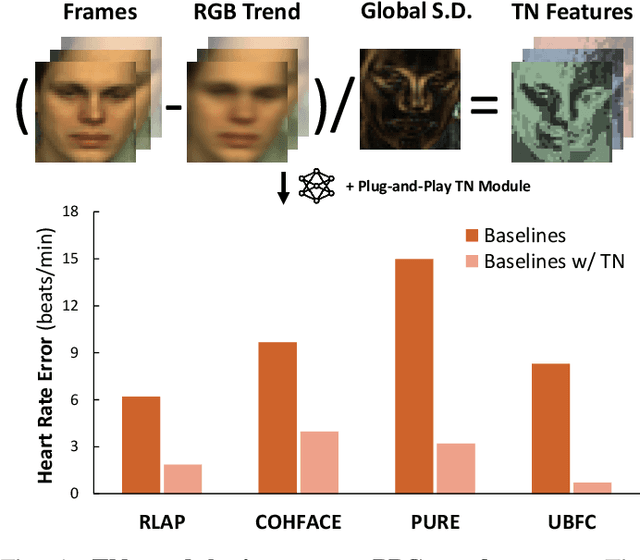

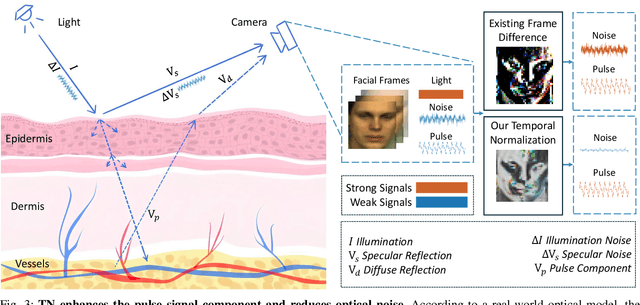
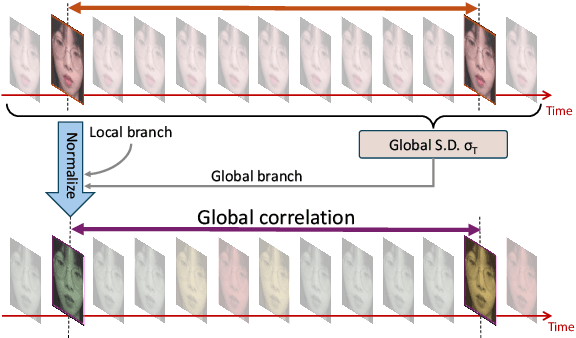
Abstract:Remote photoplethysmography (rPPG) extracts PPG signals from subtle color changes in facial videos, showing strong potential for health applications. However, most rPPG methods rely on intensity differences between consecutive frames, missing long-term signal variations affected by motion or lighting artifacts, which reduces accuracy. This paper introduces Temporal Normalization (TN), a flexible plug-and-play module compatible with any end-to-end rPPG network architecture. By capturing long-term temporally normalized features following detrending, TN effectively mitigates motion and lighting artifacts, significantly boosting the rPPG prediction performance. When integrated into four state-of-the-art rPPG methods, TN delivered performance improvements ranging from 34.3% to 94.2% in heart rate measurement tasks across four widely-used datasets. Notably, TN showed even greater performance gains in smaller models. We further discuss and provide insights into the mechanisms behind TN's effectiveness.
PhysBench: A Benchmark Framework for Remote Physiological Sensing with New Dataset and Baseline
May 07, 2023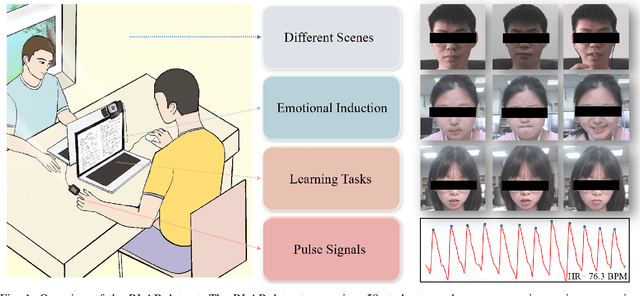

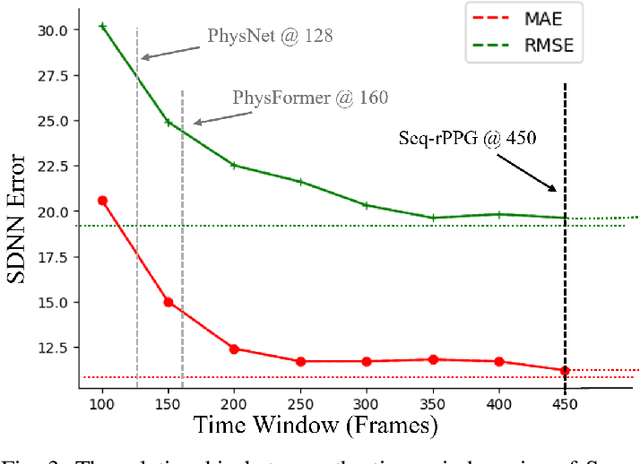
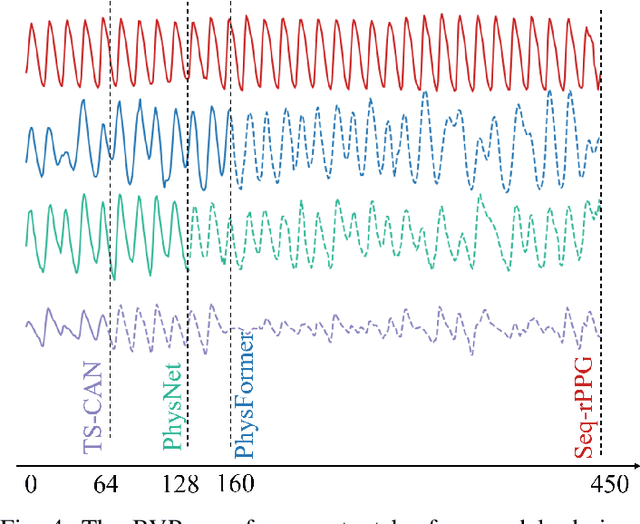
Abstract:In recent years, due to the widespread use of internet videos, physiological remote sensing has gained more and more attention in the fields of affective computing and telemedicine. Recovering physiological signals from facial videos is a challenging task that involves a series of preprocessing, image algorithms, and post-processing to finally restore waveforms. We propose a complete and efficient end-to-end training and testing framework that provides fair comparisons for different algorithms through unified preprocessing and post-processing. In addition, we introduce a highly synchronized lossless format dataset along with a lightweight algorithm. The dataset contains over 32 hours (3.53M frames) of video from 58 subjects; by training on our collected dataset both our proposed algorithm as well as existing ones can achieve improvements.
Multiscale Principle of Relevant Information for Hyperspectral Image Classification
Jul 13, 2019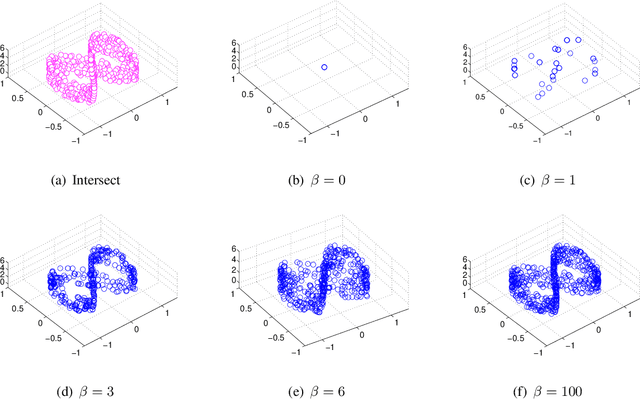
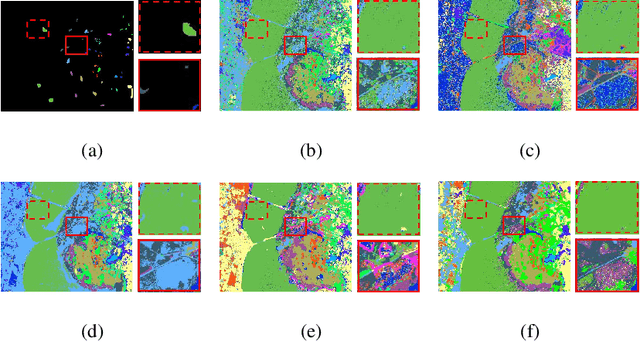


Abstract:This paper proposes a novel architecture, termed multiscale principle of relevant information (MPRI), to learn discriminative spectral-spatial features for hyperspectral image (HSI) classification. MPRI inherits the merits of the principle of relevant information (PRI) to effectively extract multiscale information embedded in the given data, and also takes advantage of the multilayer structure to learn representations in a coarse-to-fine manner. Specifically, MPRI performs spectral-spatial pixel characterization (using PRI) and feature dimensionality reduction (using regularized linear discriminant analysis) iteratively and successively. Extensive experiments on four benchmark data sets demonstrate that MPRI outperforms existing state-of-the-art HSI classification methods (including deep learning based ones) qualitatively and quantitatively, especially in the scenario of limited training samples.
Concept Drift Detection and Adaptation with Hierarchical Hypothesis Testing
Sep 17, 2018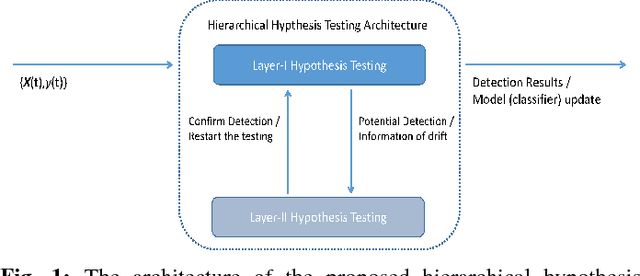
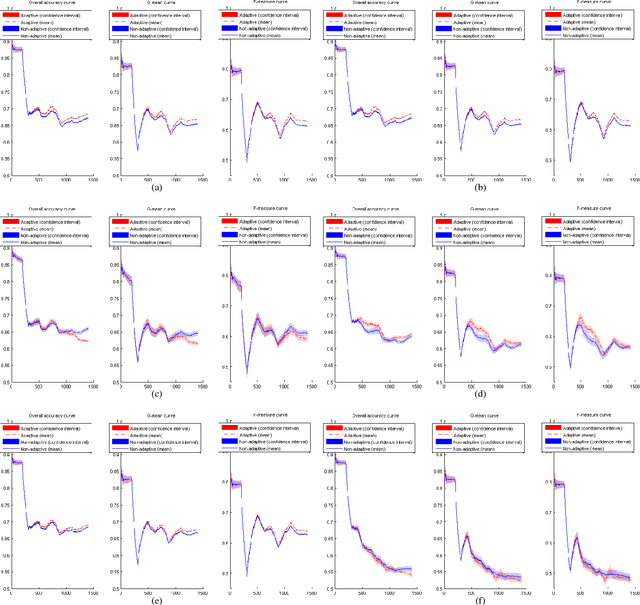
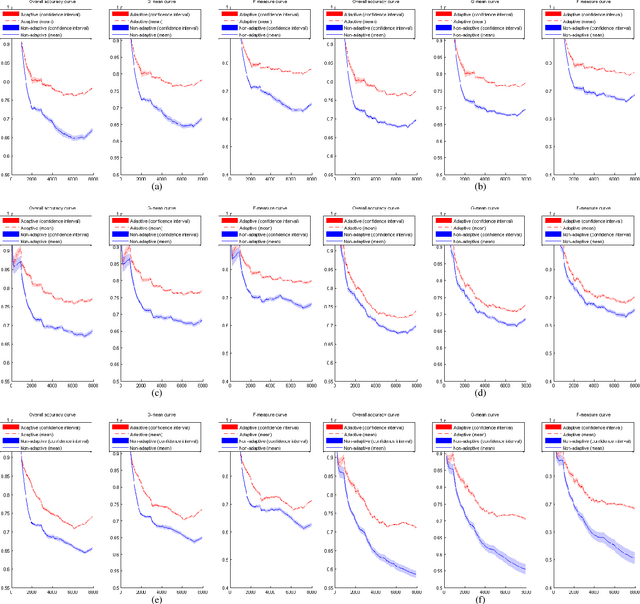
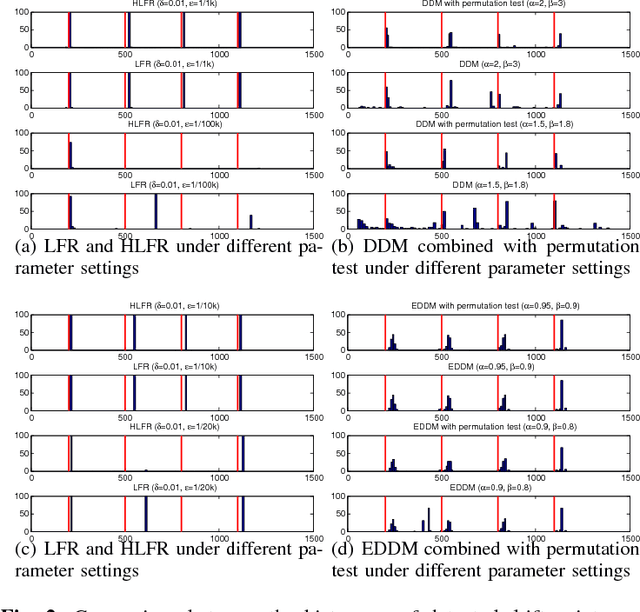
Abstract:A fundamental issue for statistical classification models in a streaming environment is that the joint distribution between predictor and response variables changes over time (a phenomenon also known as concept drifts), such that their classification performance deteriorates dramatically. In this paper, we first present a hierarchical hypothesis testing (HHT) framework that can detect and also adapt to various concept drift types (e.g., recurrent or irregular, gradual or abrupt), even in the presence of imbalanced data labels. A novel concept drift detector, namely Hierarchical Linear Four Rates (HLFR), is implemented under the HHT framework thereafter. By substituting a widely-acknowledged retraining scheme with an adaptive training strategy, we further demonstrate that the concept drift adaptation capability of HLFR can be significantly boosted. The theoretical analysis on the Type-I and Type-II errors of HLFR is also performed. Experiments on both simulated and real-world datasets illustrate that our methods outperform state-of-the-art methods in terms of detection precision, detection delay as well as the adaptability across different concept drift types.
 Add to Chrome
Add to Chrome Add to Firefox
Add to Firefox Add to Edge
Add to Edge